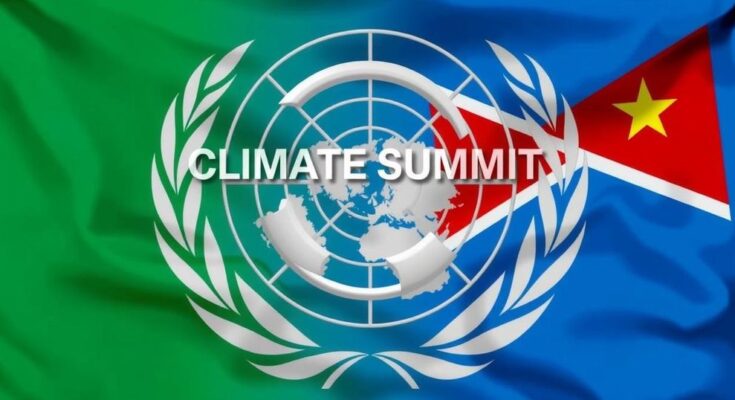Papua New Guinea has declared a boycott of COP29, labeling the UN climate summit a “waste of time” due to historical ineffectiveness and empty promises from major polluters. The nation’s leadership, advocating for greater direct collaboration with like-minded countries, reflects growing frustration with the current climate negotiation framework. This decision is supported within the Pacific bloc, highlighting the urgency of substantial climate action for vulnerable nations.
Papua New Guinea has announced its decision to boycott the upcoming UN climate summit, COP29, scheduled for next month, citing the negotiations as a “waste of time” filled with empty commitments from major polluters. Foreign Minister Justin Tkatchenko articulated the frustration with the proceedings, emphasizing that the nation fails to see value in attending meetings that do not yield tangible outcomes. He remarked, “There is no point going if we are falling asleep because of jet lag because we are not getting anything done,” highlighting the disconnection between the pledges made at COP gatherings and real progress toward climate action. The country, depicted as one of the premier rainforest nations and an important ecological zone, is experiencing extreme vulnerability to climate change impacts. Tkatchenko characterized the annual conference as a “total waste of time,” expressing frustration over the lack of substantial action taken over the years. He indicated that instead of attending the summit, Papua New Guinea plans to pursue independent climate agreements, particularly with nations like Singapore. The call for a boycott resonates not only with the government but has also received support from other Pacific island states facing urgent climate crises. Tkatchenko’s remarks reflect a broader sentiment of dissatisfaction with the status quo of international climate negotiations as countries like Papua New Guinea hurry to seek direct partnerships to address the climate emergency more effectively.
Climate change negotiations have been a focal point for global governance, facilitating discussions among nations to combat the detrimental effects of environmental degradation. The COP summits, which stand for Conference of the Parties to the United Nations Framework Convention on Climate Change, serve as critical platforms where nations negotiate legally binding climate commitments. However, criticisms have amplified over time regarding the efficacy of these discussions, especially with major polluters seemingly circumventing accountability. Countries such as Papua New Guinea, possessing significant rainforests and thus relevant in carbon sequestration efforts, find themselves deeply affected by the inadequacies of global climate commitments, leading to pronounced urgencies for actionable outcomes. In this context, the announcements of boycotts reflect deeper frustrations with negotiation processes perceived as ineffective or disingenuous.
In conclusion, Papua New Guinea’s decision to boycott the COP29 summit underscores a profound disappointment with the global climate negotiations, where rhetoric often supersedes concrete action. The country’s leadership emphasizes a desire to engage in more meaningful climate partnerships instead of participating in what they term “talk fests.” As nations sit on the brink of environmental crises, the move by Papua New Guinea could signify a growing trend among other nations seeking greater accountability from major carbon emitters. This moment may mark a pivotal shift toward bilateral agreements that prioritize genuine progress over diplomatic discussions.
Original Source: www.voanews.com




